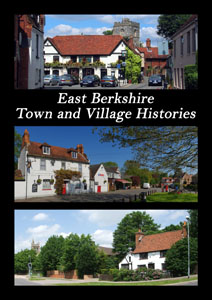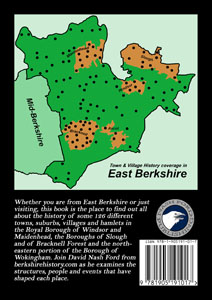 |
 |
||||||||
|
|
Easthampstead Home of Kings & Ruffians
There is no Westhampstead. Throughout the Norman and medieval periods, the village was always called Yethamstead, meaning Gate [into Windsor Forest] Homestead. The road, Fountain’s Garth in Wildridings, is supposed to have been the site of a holy spring where St Birinus baptised King Cynegils of Wessex after converting him to Christianity at Easthampstead Park in AD 634, although some people think this happened at a well near Easthampstead Church. The story may be of no great age but, if it happened at all, it would have been a very quick ceremony which took place sometime prior to King Cynegils’ official baptism at Dorchester-on-Thames. The old medieval parish church at Easthampstead was almost entirely rebuilt from 1865-67 for the 4th Marchioness of Downshire from Easthampstead Park, but the present building still retains some interesting fittings, particularly a screen made from panels of a former rood and a 15th century brass to an Eton Scholar. Memorials include one to the poet, Elijah Fenton, tutor to the son of William Trumbull of Easthampstead Park. He translated Homer’s ‘Odyssey’ with Alexander Pope from Binfield, and the latter wrote his epitaph. The church’s great treasures are its magnificent set of pre-Raphaelite stained-glass windows by Sir Edward Burne-Jones, particularly the great east window of St Michael: his finest anywhere. William Davies, a well-to-do Gloucestershire farmer, made regular trips to Berkshire, but he didn’t reap corn there. He held up the local coaches and took gold from their passengers, always leaving behind their jewels and other valuables. His neighbours always wondered why his bills were paid in gold. Little did they know he was the infamous ‘Golden Farmer’: a man with something of a Robin Hood reputation. For many a local poor man became accustomed to finding a golden guinea thrust beneath his door on nights when the highwayman had been abroad. The pub in South Hill Road is called the Golden Farmer after him. Some say it stands on the site of an earlier building that William frequented on, what was then, the edge of Gore Moor. However this is probably a confused memory of a watering hole near Bagshot. He was eventually caught and hanged in London. His body was apparently hung in chains next to the old pub wherever it was. Read more history of
Easthampstead and other Bracknell suburbs in David Nash Ford's book, 'East Berkshire Town and
Village Histories'.
|
||||||||
| © Nash Ford Publishing 2001; Revised 2020. All Rights Reserved. | |||||||||





